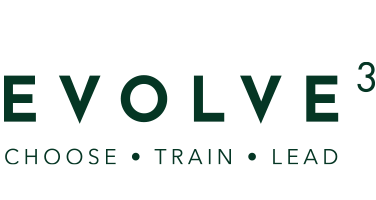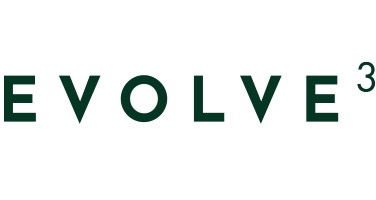
06 May Why hire developable people for entry-level roles?
Entry-level employees often form the frontline of the guest experience in hospitality. Whether in hotels, restaurants, resorts, or event venues, these team members handle daily operations, interact directly with customers, and are the first to respond to service needs. Given their critical role, the recruitment of staff for entry-level positions must go beyond simply filling vacancies. It requires a strategic focus on hiring individuals with the potential for growth—what many refer to as “developable” staff. Identifying and nurturing such employees can significantly impact long-term business success, staff retention, succession planning, and the culture of an entire organisation.
Defining “Developable” Staff
Developable staff are individuals who may not currently possess extensive skills or experience but demonstrate strong potential to grow within a company. This potential is often identified through traits like a willingness to learn, adaptability, problem-solving abilities, emotional intelligence, and a positive attitude toward feedback and collaboration.
In an industry where soft skills are as vital as technical competencies, these characteristics are especially valuable. While technical training can be provided on the job, it is much harder to instil intrinsic motivation or a growth mindset in employees who lack them. Hence, prioritising candidates who show the capacity for growth, rather than solely those who tick every box of the current job description, can deliver stronger long-term returns.
Addressing High Turnover and Skill Gaps
One of the most persistent challenges in hospitality is employee turnover. According to industry data, hospitality roles consistently experience higher turnover rates than many other industries, often exceeding 70% annually. This turnover results in high recruitment and training costs, operational disruptions, and a decline in service quality.
By recruiting developable staff, businesses can reduce these turnover rates over time. Employees who are engaged in learning, see a clear career path, and feel invested-in tend to stay longer. They are more likely to take ownership of their roles and contribute meaningfully to the business. Moreover, by promoting from within, companies can bridge skill gaps more effectively than relying solely on external hires.
The Value of Internal Development
Investing in the development of entry-level employees creates a sustainable talent pipeline. Hospitality businesses often require supervisors, managers, and specialists who understand the culture and expectations of the company. When staff are promoted internally, they carry with them knowledge of the business and a sense of loyalty and commitment.
In addition, internal development fosters consistency in service delivery. Entry-level employees who rise through the ranks have a holistic understanding of operations and are better equipped to train and lead others. They model best practices and reinforce a culture of continuous improvement.
This approach is also financially prudent. While initial training investments may seem high, the long-term savings from reduced turnover, fewer hiring needs, and increased productivity typically outweigh those costs. Additionally, companies that prioritise development often enjoy “employer of choice” status, attracting greater numbers of high-quality applicants in the future.
Building a Culture of Growth
Recruiting developable staff is only the first step. Hospitality businesses must also cultivate an environment that supports and encourages growth. This involves structured onboarding, ongoing training, mentorship programs, and clear career pathways.
Managers play a crucial role in this ecosystem. They must be trained not just in operational management but in coaching, performance feedback, and identifying potential in their team members. Regular check-ins, goal setting, and personalised development plans help reinforce the message that employees are valued and their growth matters.
Furthermore, recognising and celebrating employee progress—through promotions, public acknowledgments, or internal awards—can motivate others and reinforce a culture where development is both expected and rewarded.
Recruiting for Potential: Best Practices
To effectively recruit developable staff, businesses should refine their hiring processes to focus on potential, not just credentials. This may involve:
Behavioral Interviews: Asking situational questions that assess how a candidate might handle real-world challenges helps identify adaptability, resilience, and problem-solving skills.
Attitude Over Experience: Prioritise candidates who exhibit enthusiasm, customer focus, and a willingness to learn, even if they lack direct experience.
Trial Shifts or Assessments: Offering candidates a short trial shift can reveal how quickly they pick up tasks, interact with customers, and fit into the team.
Hiring for Cultural Fit: Align hiring criteria with the company’s values and service philosophy. Candidates who naturally embody the business’s ethos are more likely to thrive and grow.
Feedback Loops: Gather feedback from team members who interact with candidates during the hiring process to gain diverse perspectives on fit and potential.
Example: Hospitality Success Through Development
Many leading hospitality brands have demonstrated the power of recruiting and developing entry-level talent. For example, global hotel chains like Marriott International and Hilton have long-standing programs that focus on identifying talent at the ground level and offering structured pathways for advancement. Marriott’s “Voyage Leadership Development Program” and Hilton’s “Elevator Program” are both designed to take promising entry-level employees and prepare them for leadership roles over time.
These programs are more than just marketing tools—they’re integral to how these companies maintain service excellence across hundreds of properties worldwide. Employees feel invested in, resulting in higher retention and better guest experiences. Smaller hospitality businesses can take inspiration from these approaches and scale them appropriately to fit their context.
Challenges and Considerations
While the benefits are clear, recruiting and developing entry-level staff is not without challenges. It requires time, patience, and consistent investment. Some businesses, especially smaller or independent operations, may struggle to allocate resources toward training and development.
There will always be cases where promising individuals leave prematurely or don’t meet expectations. However, this shouldn’t deter businesses from the overall strategy. A well-structured approach, combined with a degree of risk tolerance, can deliver substantial returns over time.
The Takeaway
Recruiting developable staff for entry-level roles is a forward-thinking strategy that addresses some of the most pressing challenges in the hospitality industry, including high turnover, skills shortages, and inconsistent service delivery. By hiring for potential rather than perfection, and by creating pathways for internal growth, hospitality businesses can build stronger, more resilient teams.



